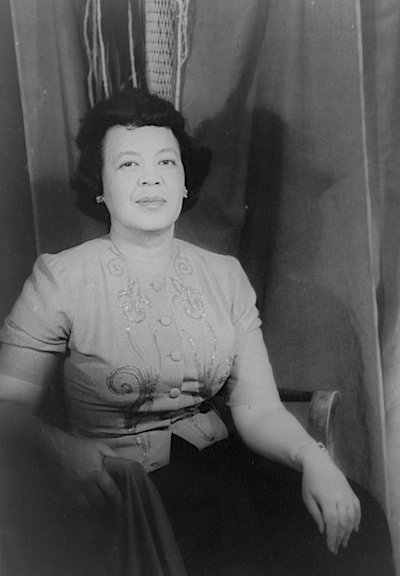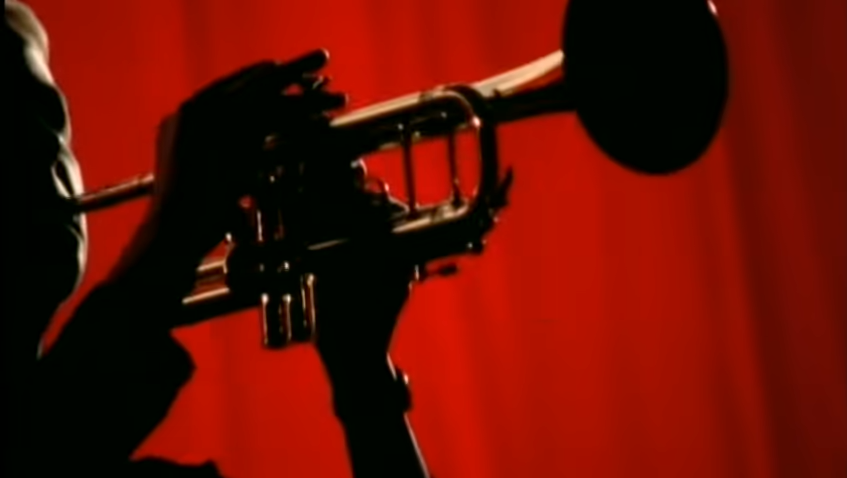by Jarrett Hoffman

•Today’s concerts: organist Wesley Hall at Church of the Covenant, and tenor Lawrence Brownlee on CCMS series
•A discussion of one-hit wonders, from raw data to subjectivity, and from classical to pop (including a Chumbawamba reference)
•A Chicago-born almanac, from Margaret Bonds to organists in baseball
HAPPENING TODAY:
At noon, Church of the Covenant presents an organ recital by Wesley Hall, repertoire to be announced. It’s free, and viewable both in person and online.
And at 7:30 on the Cleveland Chamber Music Society series, tenor Lawrence Brownlee and pianist Shelby Rhodes visit the Maltz Performing Arts Center for a program of arias and art songs from Italy, Germany, and France, as well as American spirituals and music by Mozart, Britten, and Weill. ClevelandClassical.com’s Daniel Hathaway gives a pre-concert lecture at 6:30. Get tickets here.
ONE-HIT WONDERS:
What separates a one-hit-wonder from an artist with lasting appeal? An article by Derek Thompson in The Atlantic asks that very question, digging into research by Stanford University psychologist Justin Berg.
The psychologist was able to quantify “how similar a given hit is to the contemporary popular-music landscape” (which Berg calls novelty), as well as “the musical diversity of an artist’s body of work” (variety). Two key takeaways: that novelty “is a double-edged sword,” and that variety can be more beneficial or less so, depending on the stage of the musician’s career.
All of that begs the question, who are the one-hit-wonders of classical music? Having perused lists from publications such as Classic FM, Limelight, and Van, some of the most frequently appearing names make sense. But other composers aren’t treated so fairly, having written one work that is particularly famous, but among many great and well-known pieces.
Then again, perhaps none of these artists deserve that label, and it all comes down to one’s own experiences. After all, as any true fan of English rock band Chumbawamba knows, “Tubthumping”123 is just the tip of the iceberg. And yes, the footnotes are required reading.
1“Tubthumping” is from Tubthumper, their major-label debut album.
2You might recognize it from the lyrics “I get knocked down / But I get up again / You’re never gonna keep me down,” shouted as if in a bar.
3As an interesting aside, a quotation of English Baroque composer Jeremiah Clarke’s Trumpet Voluntary appears near the end of the song (queued up here), as played by trumpeter Jude Abbott (pictured, in the music video).

Chicago-born composer and pianist Margaret Bonds (pictured left) passed away on this date in 1972. The first Black musician to solo with the Chicago Symphony, Bonds was an important artistic partner of both Florence Price and Langston Hughes, a supporter of Black musicians and composers more broadly through the Margaret Bonds Chamber Music Society, and a popular arranger of spirituals including He’s Got The Whole World In His Hands, created in 1963 for soprano Leontyne Price, who sings it here.
Among Bonds’ settings of texts by Hughes is the song cycle Three Dream Portraits. Listen to a recording by baritone Will Liverman and pianist Paul Sánchez on the album Dreams of a New Day: Songs by Black Composers (movements one, two, and three).
Speaking of Chicago-born, April 26, 1941 brought the first performance of live organ music at a Major League Baseball game. The performer was Ray Nelson, and the locale was Wrigley Field, home of the Chicago Cubs.

“Last week, we played the Cardinals, so I played the theme to Angry Birds,” Cressey said. “And people are like, ‘Whoa, Angry Birds!’ And they don’t realize, and then I’m like, ‘Yeah, we’re playing the Cardinals.’ And then people are, like, ‘Genius.’”




